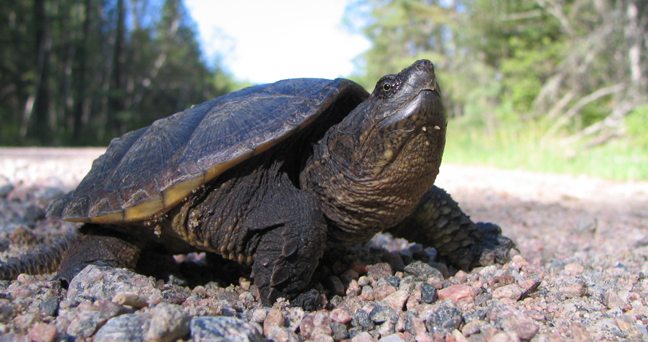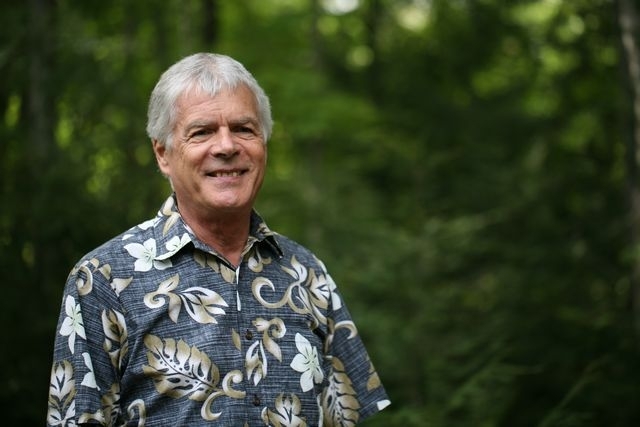Do the turtle and deer have a legal right to use Muskoka’s lakes and land as we do?
Just because our legal code declares that other species do not have rights does not make that assumption correct.
By Peter Sale.

Humility. It’s a rare commodity these days. Aggressive dominance is prized. But humility with respect to nature? What is that all about?
You may be fortunate to own a property on a lake in Muskoka, but you do not own the lake itself. Technically, the lake is Crown property, owned by Canada. You have a legal right to use that lake, but your ownership of a property on its shore does not give you a greater right than anyone else to use the lake itself.
But what about that old snapping turtle that you occasionally see in the sheltered bay near your dock? She was born nearby and has lived in your lake most of her life, probably for longer than you have been visiting. Has she earned the right to be there? To use the lake? And if she does not, who made that decision, and why? How is her use of the lake different to yours?
Leaving the snapper to decide whether she should sue for the right to use the lake, what about the deer who sometimes wanders down to the shore for a drink? Perhaps he settles down under one of the hemlocks on your property from time to time. Does he have a right to be there? If not, where is he supposed to be? And the hemlock itself? It germinated right there, decades ago, and has lived all its life literally rooted to the spot. Does the tree have a right to grow and enjoy the sunshine? If not, why not?
I am not suggesting that we need to modify our legal code to enshrine rights for every species to use, or not use, the environment. Our legal code serves its intended purposes moderately well; it provides rules that ease the interactions within our human society.
But it pretends that other species are non-sentient objects, even that we own those other species who inhabit our land. What would the snapping turtle or deer think of that? And anyway, why should non-sentience be a criterion for denying rights?
Just because our legal code declares that other species do not have rights does not make that assumption correct.
Many people do claim, but without objective evidence, that an all-powerful being gave us dominion (which amounts to the same thing).
Again, I doubt the snapping turtle would think much of that argument.
What I am suggesting is more philosophical than legal; it is useful for people to think about such things from time to time. It will help make us more willing to recognize that when it comes to the environment, we are all in this together. And when I say “we,” I mean all of us, all species that share this place we call Muskoka.
Most Muskokans agree that the health of our environment is vital to our lifestyle, our own health and major parts of our economy. However, if we truly want a healthy watershed, we have to acknowledge that it is all those other species, operating in ways that we do not yet fully understand, that make it healthy. Without them, it is dead — which is about as far from healthy as one can get. Our challenge as Muskokans is to ensure that our needs and the needs of other species can all be accommodated. We must manage our environment as if they had rights too. Because, deep down, we know we need them here.

This winter, Muskoka Watershed Council’s series of articles, First Steps on the Path to IWM, explores the philosophical, technical and political challenges we will have to face together if we are to improve environmental management in the Muskoka region. This is the second article in the series and was published on MuskokaRegion.com on 23 November 2024.
The author of this article, and the series editor, is Dr. Peter Sale, retired aquatic ecologist, Muskoka resident and director and former chair of the Muskoka Watershed Council.
